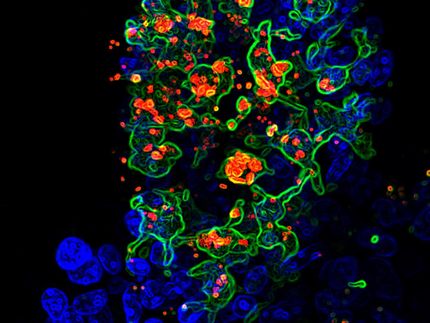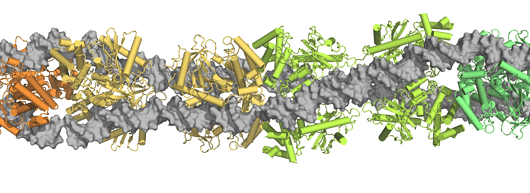Helix BioMedix Antimicrobial Peptides Show Promise in Reducing Lung Infection and Inflammation Resulting From Cystic Fibrosis
Helix BioMedix announced that research published in the July 2005 issue of Antimicrobial Agents and chemotherapy titled "Antimicrobial Peptide Therapeutics for Cystic Fibrosis" has shown that small bioactive peptides have the potential to attack two of the components responsible for the progression of lung damage in cystic fibrosis disease: infection and inflammation.
The research was conducted by Lijuan Zhang, Jody Parente and Scott M. Harris of Helix BioMedix, in conjunction with Professor Donald E. Woods of the Department of Microbiology and Infectious Diseases, University of Calgary Health Sciences Centre, Professor Robert E. W. Hancock of the Department of Microbiology and Immunology, University of British Columbia and Timothy J. Falla of Helix BioMedix.
In this study, 150 peptides were screened for activity against cystic fibrosis (CF) pathogens such as P. aeruginosa, Stenotrophomonas maltophilia, Achromobacter xylosoxidans and Staphylococcus aureus in the presence of factors that mimic the physiological environment of the CF lung. Peptides with good anti-inflammatory as well as antimicrobial activity were then tested in animal models for in vivo efficacy. The data suggests that the lead peptides, HBCM2, HBCM3, HBCPalpha-2 and HB71 significantly reduced the numbers of viable bacteria in the infected lungs of rats as well as demonstrating good anti-inflammatory activity in mice. The in vitro antimicrobial coverage of most peptides was superior to most conventional antibiotics. In addition to bactericidal activity towards multiple microorganisms, some peptides also possessed potent anti-gram-positive and anti-Candida activity, an advantage, since those pathogens can be present in the CF lung, and other antibiotics used in CF therapy, such as tobramycin, often lack useful gram-positive and fungal coverage.
Most read news
Topics
Organizations
Other news from the department research and development

Get the life science industry in your inbox
By submitting this form you agree that LUMITOS AG will send you the newsletter(s) selected above by email. Your data will not be passed on to third parties. Your data will be stored and processed in accordance with our data protection regulations. LUMITOS may contact you by email for the purpose of advertising or market and opinion surveys. You can revoke your consent at any time without giving reasons to LUMITOS AG, Ernst-Augustin-Str. 2, 12489 Berlin, Germany or by e-mail at revoke@lumitos.com with effect for the future. In addition, each email contains a link to unsubscribe from the corresponding newsletter.

























































